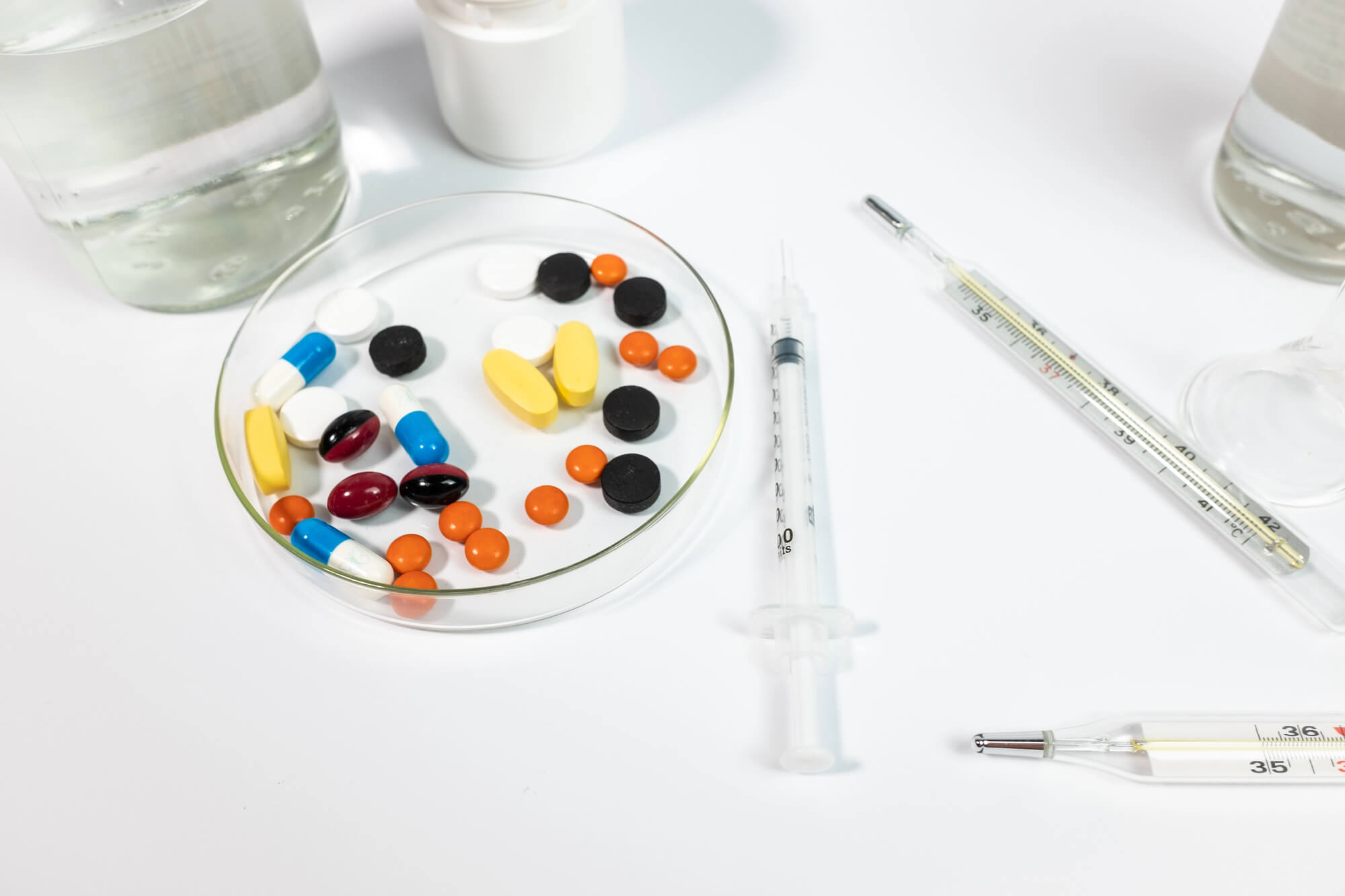
Combining ED injections and ED pills may seem like a convenient way to restore erectile function, but it’s a decision that must never be made lightly.
For many men, the idea of combining therapies—such as ED injections and ED pills—feels like a logical next step. After all, if one treatment helps somewhat, wouldn’t two treatments work even better? This thinking is common among patients looking to regain consistent erection hardness and improve sexual function, especially during frustrating sexual encounters.
However, combining these two penile injections and oral medications introduces serious clinical risks that must be evaluated carefully.
This blog explores whether it’s safe or effective to take ED pills and ED injections together, what medical professionals say, and how institutions like Boston Medical Group approach such cases. The answer, in short: in most situations, the risks outweigh the rewards—unless you’re under direct care of a licensed healthcare provider.
How ED Pills and Injections Work
Before explaining the merits of a combination therapy of erectile dysfunction injections with oral medications, knowing how each method works to provide a firm erection will help you understand why caution should be the first approach.
Oral ED Medications
Oral ED medications—such as sildenafil (Viagra®), tadalafil (Cialis®), vardenafil (Levitra®), and avanafil (Stendra®)—are part of a class of drugs known as PDE5 inhibitors. These medications function by enhancing blood flow to the erectile tissues through the relaxation of the blood vessel walls. This action increases the ability to achieve and maintain a firm erection during sexual intercourse.
However, these drugs are not without their risks. They can interact negatively with blood pressure medications, recreational drugs, illicit drugs, and various other prescription medications. Men with heart problems, sleep apnea, or complex health conditions need to consult their healthcare provider to ensure safety before using these drugs; let alone combining them with penile injections.
Penile Injections (ICP, Trimix, Alprostadil)
Penile injections, also known as Intracavernous Pharmacotherapy (ICP), involve delivering medication directly into the penile tissue. These injections typically include Alprostadil, or a compounded mix like Trimix, which might contain papaverine, phentolamine, and alprostadil. These medications act locally by dilating blood vessels, stimulating a direct erectile response, often within minutes after injection.
This method is often used in cases where oral medications fail, particularly in men recovering from prostate cancer, or those with vascular or neurological disorders. However, the treatment demands exact technique; meaning, ensuring the vial of medication is sterilized using an alcohol swab, removing air bubbles, and inserting the needle correctly into the designated injection site.
Why Combining Can Be Dangerous
While both forms of treatment are effective independently, combining them can overwhelm the body’s vascular system, an interaction called “additive effect risk.” Both penile injections and oral phosphodiesterase-5 inhibitors increase blood flow, and using them together can lead to excessive dilation of the blood vessels, posing serious risks like painful erection, prolonged erection, or priapism.
Priapism, which is an erection lasting longer than four hours, can cause irreversible damage to erection tissue, resulting in permanent erectile dysfunction if not treated as a medical emergency. The cumulative strain on the cardiovascular system can also trigger a dangerous drop in blood pressure, especially in patients on other medications or with coexisting health factors.
Absolute Timing Rules: When You Should Not Combine Treatments
The key to understanding the risk of combining ED injections and ED pills lies in their active durations and interaction windows.
Medical guidelines strictly advise against using these medications too closely together due to their compounded effects on blood vessels and blood pressure.
If you are taking any oral medication for ED treatment, take into consideration the following timelines before taking any penile injections:
- Sildenafil (Viagra®), Vardenafil (Levitra®), Avanafil (Stendra®), Alprostadil:
Do not inject any intracavernosal injection within 18 hours of taking these oral medications, and vice versa. - Tadalafil (Cialis®) 10–20 mg:
Requires a 72-hour (3-day) window before or after using injectable medications like Trimix or Alprostadil. - Daily 5 mg Tadalafil (Cialis®):
Requires individualized medical guidance. A healthcare provider or advanced practice professional (APP) should offer specific timing strategies based on your full health history and other medications.
Failing to observe these intervals can result in dangerously amplified effects, posing significant risks to cardiovascular stability and erectile tissue health.
Priapism Risk and Emergency Response
Combining ED pills and injections increases the risk of priapism; an erection that lasts beyond four hours and does not subside after ejaculation. This is not a mere inconvenience. It’s a medical emergency that can result in tissue damage, blood vessel trauma, and the permanent loss of erectile function.
Men experiencing priapism should seek emergency medical care immediately. Treatment delays can lead to the need for surgical intervention and permanent reliance on penile implants or other invasive treatments for erectile dysfunction.
Why This Combination Is Not Typically Recommended
Despite the allure of “boosting results,” most healthcare providers advise against combining these therapies. The theoretical benefits of stronger erection hardness or longer performance do not justify the severe adverse effects, including:
- Risk of blood pressure collapse
- Dangerously unregulated dose of medication
- Unpredictable reactions due to underlying health conditions or drug interactions
The general rule is simple: Do not mix ED pills and injections unless a licensed healthcare provider specifically designs and monitors your treatment plan.

Why Some Doctors Might Prescribe Combination Therapy
While the general consensus advises against mixing erectile dysfunction (ED) pills and injections, there are specific circumstances under which some healthcare providers might carefully prescribe this combination.
These situations usually involve complex cases of ED where single-treatment modalities have proven ineffective.
Extremely Select Scenarios
While the standard medical advice is to avoid combining ED injections and ED pills, there are rare, carefully considered exceptions. These situations often involve patients who have not responded to conventional monotherapy, either oral medications or penile injection therapy, even when administered at the correct dosage.
Examples include men with:
- Advanced vascular disease or severe nerve damage
- Post-surgical complications from prostate cancer or bladder cancer
- Complex cases involving sleep disorders or resistant erectile dysfunction due to hormonal treatments
In these contexts, a physician may prescribe combination therapy in a controlled environment, with tight monitoring of blood pressure, erection response, and any emerging side effects.
Under Continuous Supervision Only
Any scenario involving the combination of ED injections and ED pills must be medically justified and managed under strict supervision. Licensed healthcare professionals will typically:
- Conduct extensive health history and medication reviews
- Evaluate cardiovascular health, including risk of heart attack, blood clotting, and current use of blood thinners or recreational drugs
- Establish safe protocols using online consults, check-ins, and medication logs to prevent overdose or improper scheduling
Clinics like Boston Medical Group follow advanced protocols using personalized treatment plans that eliminate guesswork. This includes specifying when to skip an injection, adjust the dose of sildenafil, or replace a combination plan with customized formulations.
The Role of Boston Medical Group in Safely Managing Treatment
At Boston Medical Group (BMG), treatment begins with precision diagnostics—not assumptions. Their proprietary Boston Method® includes:
- Comprehensive review of medical condition, history, and concurrent medications
- In-depth blood pressure evaluation and cardiovascular assessment
- Planning injection timing to avoid interaction with oral medications
- Instruction on proper injection therapy techniques: sterile prep, choosing appropriate injection sites, removing air bubbles, and correct use of alcohol pads on the rubber stopper of the medication vial
This approach helps reduce risks associated with poor injection practice, wrong dose of medication, and incorrect spacing between drug administrations
Nationwide Telemedicine with Rigorous Follow-Up
Boston Medical Group offers telemedicine services nationwide. That means patients can:
- Receive online consults for adjusting their treatment of erectile dysfunction
- Submit injection reports or request clarifications such as “injection tomorrow morning” or missed dose guidance
- Be alerted when it’s unsafe to proceed due to recent use of oral medications or if there are signs of adverse effects
Whether managing daily treatment routines or exploring safer alternatives, BMG ensures a closed feedback loop to protect patient safety every step of the way.
Key Risks of Ignoring Medical Guidance
Combining ED injections and ED pills is not a plug-and-play regimen. It’s a delicate adjustment made only after exhaustive review by specialists who understand the dangers of drug combinations, long-term side effects, and patient-specific health factors.
Otherwise, patients will be at high-risk of several complications.
Priapism – The Most Severe Complication
One of the most dangerous outcomes of unsupervised combination of ED injections and ED pills is priapism, a prolonged and often painful erection lasting more than four hours. Far from being a sign of treatment success, priapism represents a medical emergency.
Without timely intervention, this condition can:
- Permanently damage erection tissue
- Lead to irreversible erectile dysfunction.
- Necessitate surgical treatment or penile implants.
- Impact psychological health and reduce quality of life.
Blood Pressure Dangers
Both PDE5 inhibitors and intracavernosal injections cause blood vessel dilation. When used together, they can result in a dangerous drop in blood pressure, especially in men with:
- Heart problems, including a history of heart attack.
- Co-morbid conditions like sleep apnea or use of blood thinners.
- Concurrent use of antifungal drugs, illicit drugs, or medications for chemotherapy for cancer.
This drop in blood pressure can cause dizziness, fainting, or even a cardiovascular collapse, posing life-threatening risks.
Self-Injection Protocol Risks
Injecting without following sterile technique also opens the door to avoidable complications. Common mistakes include:
- Skipping the alcohol wipe or using expired alcohol swabs
- Injecting without removing air bubbles from the syringe
- Failing to sanitize the rubber stopper on the medication vial
- Using an incorrect or unclean injection site
Even if the medication is correct, poor technique can introduce infection, cause internal bleeding, or lead to painful nodules in the penile tissue; a frequent side effect in injection reports of improperly trained users.

What to Do Instead of Combining ED Injections and ED Pills
Before considering combining ED injections and ED pills, it’s essential to consult a licensed healthcare provider. Erectile dysfunction ED is complex, and many treatment issues are not due to medication failure, but rather problems such as an incorrect dose, inconsistent timing, or interactions with other drugs, alcohol, blood thinners, or underlying conditions like heart disease, stress, or sleep disorders.
In many patients, erectile dysfunction stems from suboptimal blood flow through blood vessels or impaired penile blood flow rather than a lack of medication strength. Using more medication or a higher dose without medical oversight can disrupt smooth muscle tissue, overwhelm erectile tissue, and increase the risk of prolonged erection or severe pain.
Rather than stacking oral ED medications and penile injections, a physician may recommend adjusting the right dose, switching oral medications, modifying injection therapy frequency, or transitioning between oral medications and injectable treatment. In some cases, vacuum erection devices or other ED treatment options may be considered before escalation to injections or penile prosthesis.
Use Customized Formulations
Clinics such as Boston Medical Group work with compounding pharmacies to provide customized, FDA approved formulations that improve success rate while minimizing risk. These formulations are carefully designed to relax smooth muscle tissue, increase blood flow, and support erectile tissue without overlapping drugs that could cause complications.
Examples include tailored Trimix injections based on individual vascular response, structured protocols that separate oral ED medications from penile injections, and specialized blends for many patients, especially those with comorbidities or sensitivities. These approaches prioritize safety over off-label drug stacking and focus on preserving penile tissue, nerve endings, and long-term erectile function.
Monitor Response, Not Just Erection Quality
Successful ED treatment isn’t defined solely by achieving an erection firm enough for penetration. Long-term success depends on stable penile blood flow, healthy smooth muscle, and the absence of adverse effects like scar tissue, called Peyronie’s disease, or injection site complications.
Medical professionals encourage tracking response beyond erection hardness, including circulation quality, mood, sleep, and cardiovascular tolerance. These indicators help determine whether injections work effectively without requiring extra medication or increasing the desired amount beyond safe limits.
BMG Ensures Safety First in Erectile Dysfunction Treatment
While combining penile injections and ED pills may seem appealing, especially to most men seeking a full erection quickly, the risks are significant. Combining drugs that increase blood flow can lead to prolonged erection, priapism, or dangerous drops in blood pressure, which may constitute a medical emergency requiring a local emergency room or emergency room visit.
Injection therapy carries its own responsibilities. Proper training is essential for self injection, including preparing the medication vial, removing the plastic top, cleaning the rubber stopper with an alcohol swab or alcohol wipe, and ensuring no air bubbles remain before injection. The syringe upside technique, using a fine needle, drawing the correct dose, and injecting directly into the corpora cavernosa in the middle third of the penis are all good practice.
Patients are taught to avoid injecting into the same spot, rotate injection sites, use the index finger and middle fingers for stabilization, and apply pressure after injection to reduce bleeding and scar tissue. Avoid injecting more medication, using a higher dose, or repeating injections too soon, even if the first injection does not produce immediate results. Quickly pull the needle out at the correct angle and never exceed prescribed limits.
Most common side effects of injections include mild pain, bruising, or temporary discomfort, but severe pain, persistent swelling, or erections lasting too long require immediate medical attention. If symptoms escalate, patients should seek care from their healthcare provider or an emergency room without delay.
To recap, never self-combine ED medications, injections, or drugs without professional oversight. Use precise timing protocols when switching treatments, seek customized formulations when standard therapies fail, and monitor your overall health response—not just erection quality.
If you’re unsure whether your current treatment plan is optimized or are considering adding injections to oral medications, the next step is a comprehensive evaluation. Erectile dysfunction treatment works best when it’s personalized, evidence-based, and focused on long-term safety rather than short-term results.
Book your consultation with Boston Medical Group today.
Disclaimer: This content is intended for informational purposes only and does not constitute medical advice. Always consult a qualified healthcare provider before starting or changing your ED treatment regime

